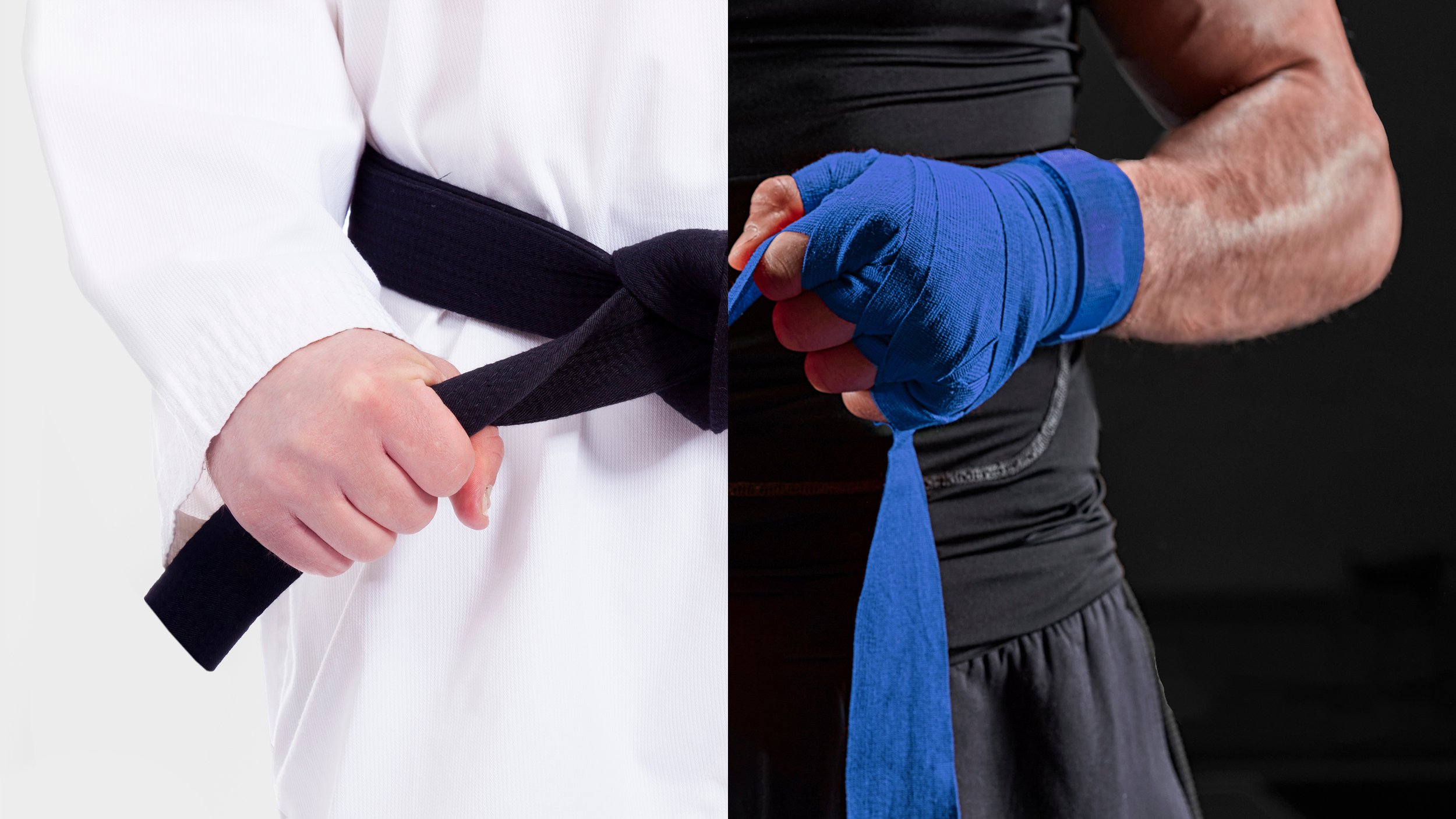Master of One or Superstar of All
To be a specialist or not to be, that is the question. The world of martial arts can be used to draw parallels to dentistry. Does one aim to be a master black belt in Shito Ryu Karate or Jiu Jitsu, or does one become a champion UFC fighter in mixed martial arts? The same question applies to being an excellent, well-diversified general dentist or a specialist in dentistry.
In Karate, students tie on colored belts themselves as they progress in level, except for when it comes to the black belt. The sensei always straps on the black belt once a student achieves that status. Just like obtaining board certification and recognition in orthodontics, endodontics, oral surgery, etc., all the hard work, exams, mastering katas, and ninja crunches, or defending a thesis like doing a karate endurance test— all come to an unforgettable defining moment. This is when the dentist walks on stage at graduation, or the black belt is secured onto the karate gi.
However, the rules in dentistry are a little more particular. The "good" about being a specialist is that you are deemed an expert in that field of dentistry. Specializing comes with the fact that this specific sub-category of dentistry will be all you do for the rest of your life if you choose to remain a specialist. Some martial artist masters are content with being experts in their martial arts style. However, others are more exploratory; they may want that sensation and satisfaction of being a bleeding, super-ripped, tattooed MMA fighter who ultimately is known for a "don't mess with me" attitude. As in general dentistry, some want to branch out into dental sleep medicine, implant dentistry, or teaching, researching, and getting educated on multi-disciplines. Since there are so many developing areas (such as sleep dentistry and occlusion/TMD/orofacial pain), general dentists can credential and earn fellowships, masterships, and diplomates in these excellent branches of dentistry.
Furthermore, as the MMA fighter can explore new moves, techniques, and strength building, the general dentist can find a new passion for becoming proficient in what still needs to be researched and studied. Examples are the connection between restorative dentistry to the airway, sleep bruxism, and REM sleep, or how cranial distortions, squamous suture releases (non-invasive), and postural problems connect to TMD and myofascial pain. There is so much to explore and to learn about—and as an MMA general dentist, the sky is not even the limit.
On the other hand, if you want to be an outstanding, diversified general dentist who enjoys, learns, and grows in multiple disciplines, you are still obligated to do each procedure to the level that meets the standard of the specialist. If you cannot, then you must refer to a specialist. Just like all the dilacerated roots for endo, the bony impacted third molars, or the extensive bone grafts from oval window to block grafts, general dentists must refer if they feel their expertise, skill, and experience is not to the level of the black belts out there. With that said, there are benefits to both careers. Both can achieve superstar status and be trendsetters, changing paradigms and improving healthcare worldwide.
About the author
Jerry Hu, DDS, is triple board-certified in dental sleep medicine and holds masterships, fellowships, and accreditations in implant and cosmetic dentistry. He also has published numerous clinical studies in peer-reviewed, highly respected journals such as AACD's Journal of Cosmetic Dentistry and AADSM's Journal of Dental Sleep Medicine. Dr. Hu also teaches for MicroDental Laboratories, and Prosomnus Sleep Technologies. He also has won numerous awards in cosmetic and implant dentistry from Macstudio Model Search by MicroDental, and the IAPA Aesthetic Eye competition. He is currently working on a patent for dental sleep medicine and looking to help the US military out in dental sleep medicine.


